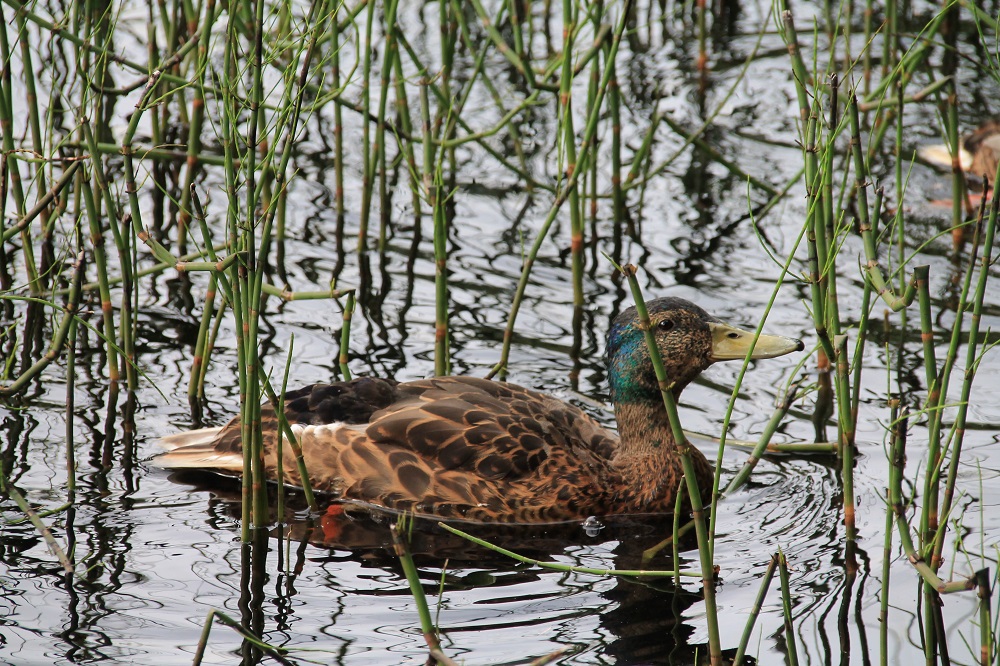
The expansion of alien plant species is of global concern, yet our understanding of their dispersal mechanisms is limited. In a new study, a group of researchers with the participation of the Doñana Biological Station has addressed the potential of alien plant seeds to disperse via ingestion, transport and egestion in waterfowl (endozoochory). Based on their general rapid expansions, the team expected alien plant species to have several advantages for endozoochory compared to native plant species. In this sense, they hypothesised that seeds of alien species would have higher passage rate, longer gut retention times, higher germinability after gut passage and shorter time-to-germination after egestion by waterfowl.
In order to test their hypotheses, the researchers compared the endozoochorous dispersal ability of six pairs of congeneric alien and native wetland plant species in a feeding experiment with mallards (Anas platyrhynchos). They focused on differences in seed survival, gut retention time, germinability and time-to-germination. In the analyses, they corrected for seed shape and volume as these seed traits are known to have important effects.
With gut passage, alien species had higher passage rates and germinated slower, whereas native species had shorter retention times and greater germinability. Controlling for seed traits did not alter these conclusions, but seed traits affected all aspects of the endozoochory process. This suggests that alien species may have particular traits correlated with a higher endozoochory potential. Among control seeds, alien seeds germinated faster and their germinability was higher than natives. Seed traits explained differences in germinability and time-to-germination in control seeds.
Seeds of alien plant species have traits that correlate with successful endozoochory. This may provide alien species with a competitive advantage over native plant species by ensuring higher endozoochory rates in new environments, potentially enabling their rapid expansions. This new study underlines the important role of seed traits in the endozoochory potential of alien and native plant species, notably through their influence on retention time and germination.
Reference:
Ádám Lovas-Kiss, María J. Navarro-Ramos, Orsolya Vincze, Viktor Löki, Renáta Urgyán, Felícia Pallér-Kapusi, Casper H. A. van Leeuwen, Andy J. Green, Balázs András Lukács. Traits for transport: Alien wetland plants gain an advantage during endozoochorous seed dispersal by waterfowl. Freshwater Biology. https://doi.org/10.1111/fwb.14154



